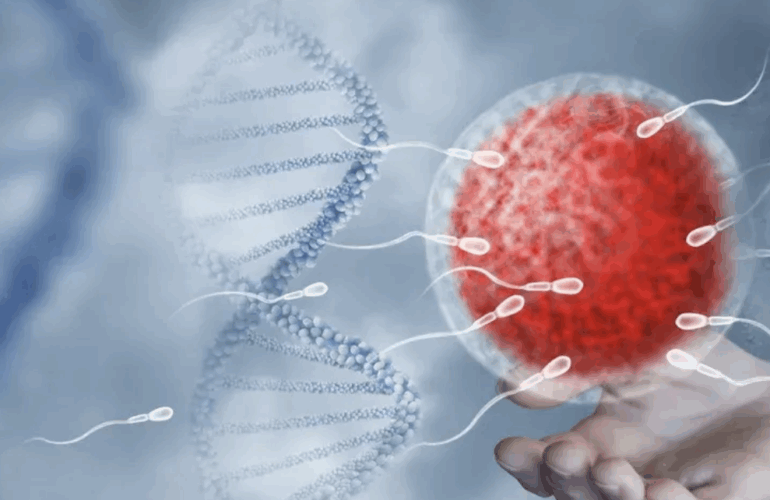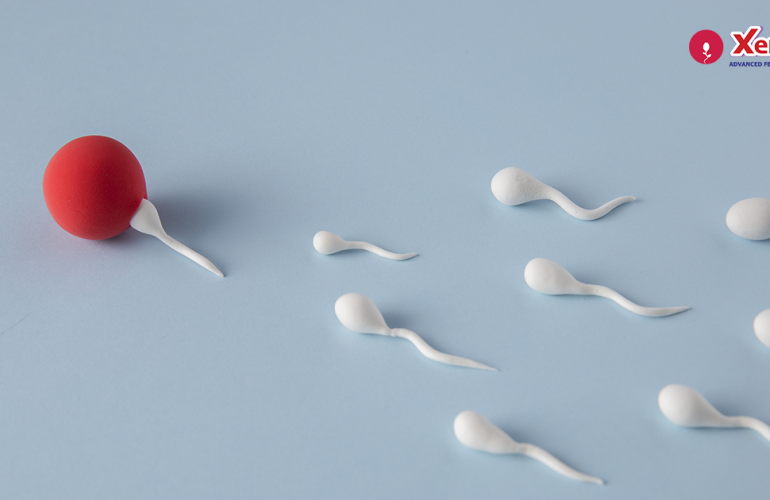When we think about male fertility, the first hormone that comes to mind is usually testosterone. But did you know that estrogen—often labeled as the “female hormone”—also plays an important role in men’s health? The tricky part is, when estrogen levels climb too high, they can throw everything off balance.
If you’ve been wondering why your energy, libido, or fertility doesn’t feel quite right, hormones might have something to do with it. Let’s break this down in simple terms and see how high estrogen can affect male fertility—and more importantly, what you can do about it.

Free Thursday Consultation
Book Your Appointment- Estrogen in Men: Why It Matters
- What’s a “Normal” Estrogen Level for Men?
- Causes of High Estrogen Levels in Men
- Impact of High Estrogen on Male Fertility
- Symptoms of High Estrogen in Men
- How to Diagnose High Estrogen Levels
- Strategies to Manage and Lower Estrogen Levels
- When to Seek Medical Advice
- Finding Balance Again
- FAQs
Estrogen in Men: Why It Matters
Even though estrogen is usually associated with women, men naturally produce it too, just in smaller amounts. In fact, you need estrogen for things like:
- Supporting a healthy sex drive
- Maintaining strong bones
- Keeping cholesterol in check
- Protecting brain function
The key word here is balance. Too little or too much estrogen can cause problems. And when estrogen rises above healthy levels, fertility often takes the hit first.
What’s a “Normal” Estrogen Level for Men?
Doctors usually measure estradiol (the main type of estrogen). In men, normal levels are about 10 to 40 pg/mL (picograms per milliliter). Testosterone, by comparison, should be much higher, creating the right balance between the two hormones.
If estrogen creeps up—or testosterone drops while estrogen stays the same—you get a hormonal imbalance. That’s when symptoms and fertility challenges start to show up.
Causes of High Estrogen Levels in Men
A few different things can push estrogen above the normal range:
1. Medications
Certain medicines can mess with your hormones. For example:
- Steroids or hormone therapy
- Some antidepressants or anti-anxiety drugs
- Chemotherapy medications
- Certain antibiotics and antifungals
If you’re taking these and notice changes in your fertility or sex drive, it’s worth asking your doctor about side effects.
2. Environmental Factors
We’re all surrounded by chemicals called endocrine disruptors—substances that act like estrogen in the body. These can be found in:
- Plastics (especially those with BPA)
- Pesticides in food
- Industrial pollutants
- Parabens and phthalates in soaps, shampoos, and lotions
Over time, constant exposure can tip your hormone balance in the wrong direction.

3. Underlying Health Conditions
Some health issues naturally raise estrogen levels, such as:
- Obesity (fat tissue actually converts testosterone into estrogen)
- Liver problems (the liver normally clears excess estrogen)
- Thyroid disorders
- Rare tumors in the adrenal glands or testes

Impact of High Estrogen on Male Fertility
Here’s where things get personal. High estrogen doesn’t just affect lab numbers—it affects everyday life, especially fertility.
1. Sperm Production
Estrogen messes with the signals your brain sends to the testes. The result? Fewer sperm, or sperm that don’t move as well. Both make conception harder.
2. Erectile Dysfunction
Elevated estrogen can interfere with blood flow by lowering nitric oxide levels, making it more difficult to get or maintain an erection.
3. Libido
When testosterone takes a back seat to estrogen, sexual desire often drops. Many men report a noticeable decline in sex drive when estrogen is high.
Symptoms of High Estrogen in Men
The signs aren’t always obvious at first, but some common red flags include:
- Low sex drive or erectile dysfunction
- Trouble conceiving
- Enlarged breast tissue (gynecomastia)
- Belly fat or overall weight gain
- Mood swings, irritability, or feeling down
- Constant fatigue or low motivation
If several of these sound familiar, it may be worth getting your hormones checked.
How to Diagnose High Estrogen Levels
The process usually starts with a simple blood test to measure estradiol and testosterone. Your doctor may also review your medical history, lifestyle, and medications. In some cases, additional scans or tests are done if a health condition like a tumor is suspected.
Getting tested is important—not only to confirm estrogen levels but also to rule out other hormonal imbalances that could be affecting fertility.
Strategies to Manage and Lower Estrogen Levels
The good news? High estrogen can usually be managed. Here are some steps doctors often recommend:
1. Dietary Changes
- Load up on cruciferous veggies (broccoli, cauliflower, kale) that naturally help process excess estrogen.
- Add more fiber to your diet—it supports the liver in clearing hormones.
- Cut back on alcohol, which raises estrogen and stresses the liver.
- Choose organic foods when possible to reduce pesticide intake.
- Stick to lean proteins for better weight management and hormone balance.
2. Lifestyle Adjustments
- Maintain a healthy weight: less fat tissue = less estrogen production.
- Exercise regularly: strength training and cardio both help testosterone.
- Prioritize sleep: poor sleep drags down testosterone and raises stress hormones.
- Cut down on plastics: avoid heating or storing food in plastic containers.
- Manage stress: yoga, meditation, or even daily walks can calm your system.

3. Medications
If lifestyle and diet aren’t enough, doctors might suggest:
- Aromatase inhibitors (medications that stop testosterone from turning into estrogen)
- SERMs (Selective Estrogen Receptor Modulators) to block estrogen’s action
- Testosterone therapy, if levels are very low
When to Seek Medical Advice
Don’t brush off symptoms if you notice:
- Ongoing trouble conceiving
- Erectile issues or sudden drop in sex drive
- Breast tenderness or enlargement
- Unexplained mood shifts, fatigue, or weight gain
A doctor can help identify what’s really going on and guide you toward safe solutions.
Finding Balance Again
Hormonal health is about balance, not perfection. High estrogen in men may sound alarming, but it’s something you can tackle with the right approach. A mix of lifestyle changes, medical guidance, and patience can restore balance, improve fertility, and bring back confidence in your body.
Remember: having a hormone imbalance doesn’t make you “less masculine.” It simply means your body is asking for support—and with the right care, balance can be restored.
FAQs
Low libido, erectile problems, infertility, breast enlargement, belly fat, mood changes, and constant fatigue.
It disrupts communication between the brain and testes, reducing sperm count and motility.
Eating more cruciferous veggies, exercising, sleeping well, cutting down on alcohol and plastics, and maintaining a healthy weight.
If you notice ongoing fertility problems, sexual health issues, breast enlargement, or major mood and weight changes.
Yes—certain drugs like steroids, antidepressants, chemotherapy, and antifungals can raise estrogen or disturb hormone balance.




